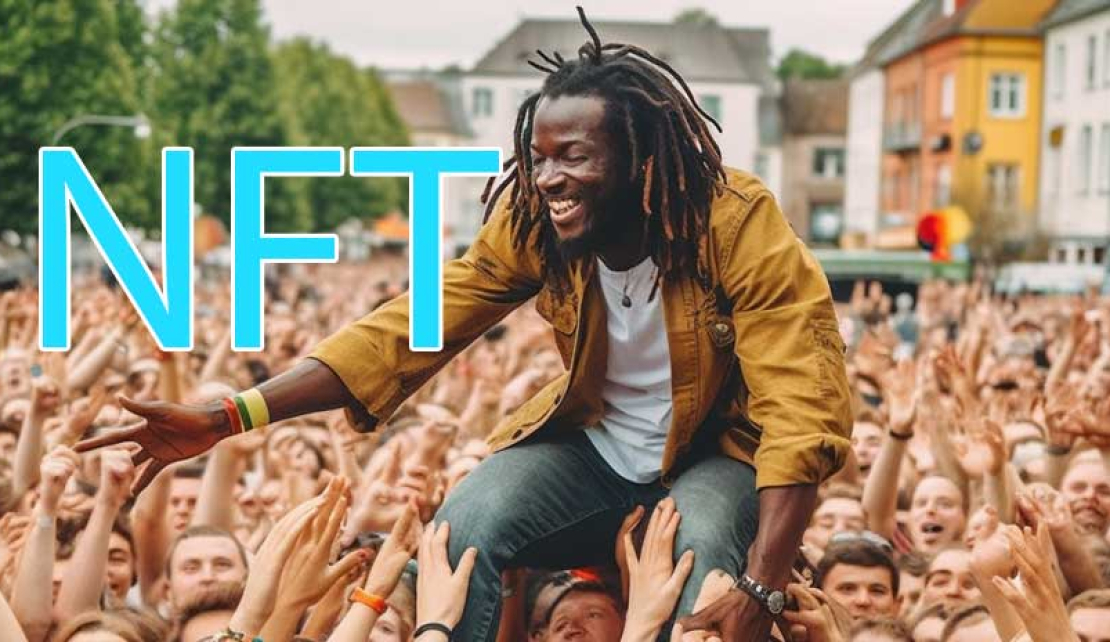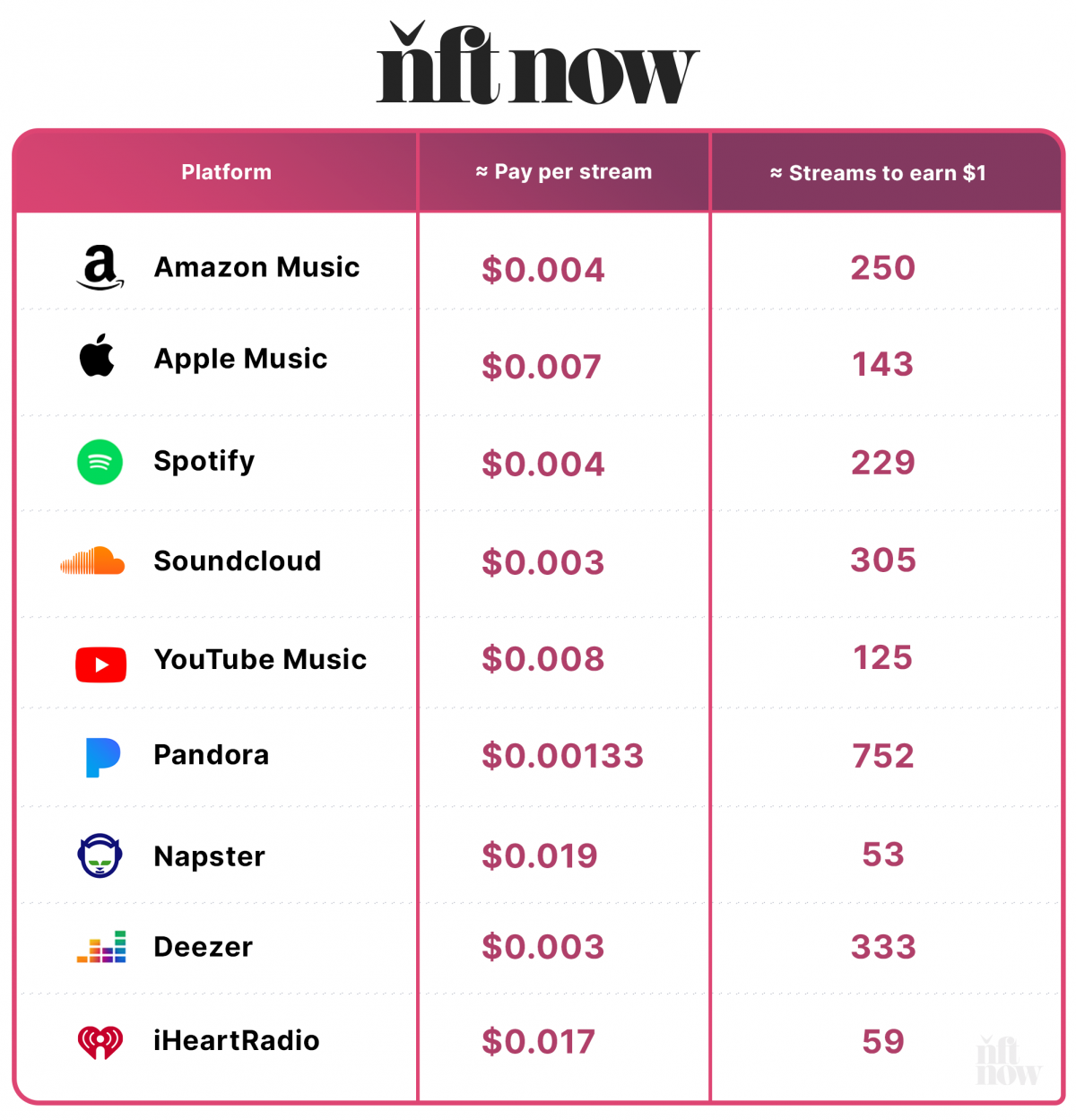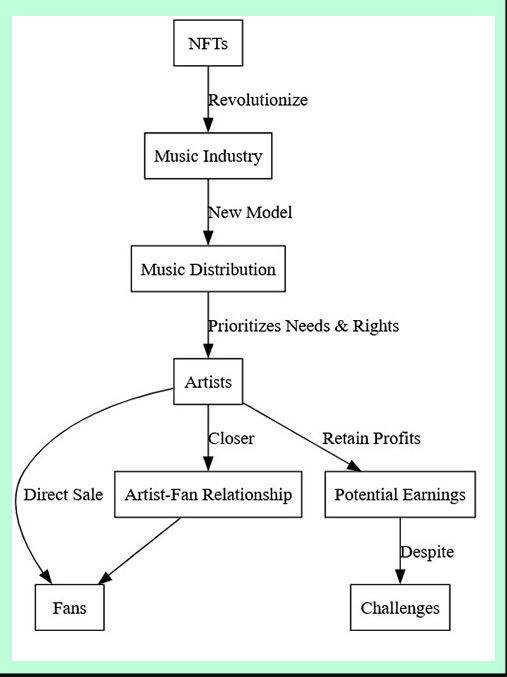A New Rhythm in the Music Industry: NFTs and Artist Empowerment

MONTEGO BAY, June 10, 2023 - In the ever-evolving world of music, a new player has entered the scene, promising to revolutionize the way artists interact with their audience and profit from their work. This player is none other than Non-Fungible Tokens, or NFTs.
Decoding: What are NFTs? NFTs are unique digital assets that are stored on a blockchain, the same technology that underpins cryptocurrencies like Bitcoin and Ethereum. Unlike these cryptocurrencies, however, each NFT is unique and can't be exchanged on a like-for-like basis.
The music industry, for all its glitz and glamour, has a dark side. Artists, especially those at the beginning of their careers, often find themselves at a disadvantage. They are bound by contracts that heavily favor record companies and managers, leaving them with a fraction of the profits their music generates.
Unfair Contracts: A Case Study of TLC
Take the case of TLC, one of the best-selling girl groups of all time. Despite their success, the members of TLC filed for bankruptcy in the mid-90s, citing poorly structured contracts that left them with less than a penny per album sold.
Although the rise of streaming platforms has created a kind of golden age for fans by giving them easy access to virtually any song, it hasn’t been so kind to artists. The music industry’s current business models seem to reward big labels and platforms — often at the expense of the indie creators who are the industry’s lifeblood.
In fact, according to the publication "NFT Now" artistes typically only make $0.003 to $0.005 per stream. What does this mean when it comes to total earnings? Let’s turn to Spotify for the answer. It is a $43 billion company, but only roughly 7,500 artists on the platform earn $100,000 or more per year. These figures considered, it seems that streaming benefits the consumer and the provider much more than it does the artist.

The NFT Revolution: Power to the Artists
NFTs, however, promise to disrupt this unfair system. By tokenizing their music, artists can sell their work directly to their fans. This not only allows them to set their own prices but also helps them retain a significant portion of the profits.
Imagine a world where musicians are not bound by the whims of record companies, where they can release their music when they want, how they want, and at a price they deem fair. This is the world that NFTs can help create.
The Potential Earnings: Artists Embracing NFTs
The potential earnings from NFTs are staggering. Artists like Grimes and Kings of Leon have already jumped on the NFT bandwagon, earning millions in the process. These success stories serve as a beacon of hope for other artists looking to break free from the traditional music industry model.
Of course, like any new technology, NFTs come with their own set of challenges. The market is highly volatile, and the environmental impact of minting NFTs has been a topic of heated debate.
The Risk-Reward Scenario
However, these risks do not overshadow the potential benefits. For many artists, the risk of venturing into the unknown world of NFTs is a small price to pay for the chance to regain control over their work and their profits.
A Unique Opportunity: Fostering Artist-Fan Relationships
NFTs also offer artists a unique opportunity to foster a closer relationship with their fanbase. By offering exclusive content or experiences as NFTs, artists can engage with their fans on a whole new level.
Imagine being able to own a piece of your favorite song, or having access to exclusive concerts or meet-and-greets with your favorite artist. This is the kind of intimate fan experience that NFTs can facilitate.
The beauty of NFTs lies in their versatility. An artist could, for example, choose to sell their song for anywhere between $10 to $100, depending on how they value their work. This level of control over pricing is unheard of in the traditional music industry, where artists often have little say over how their music is priced or distributed.
Looking Forward: The Future of the Music Industry
As we look to the future, it's clear that NFTs have the potential to reshape the music industry. They offer a new model of music distribution that prioritizes the needs and rights of artists.
This is not to say that NFTs will replace traditional music distribution channels overnight. Spotify, iTunes, and other platforms still play a crucial role in helping artists reach a wide audience. However, as artists and fans alike become more familiar with NFTs, we can expect to see a shift in how music is distributed.
NFTs and Music: A Visual Overview
Here is a visual representation of the potential impact of NFTs on the music industry:

The diagram illustrates how NFTs, as unique digital assets stored on a blockchain, promise to revolutionize the music industry.
They offer a new model of music distribution that prioritizes the needs and rights of artists.
Artists can sell their work directly to fans, setting their own prices and retaining a significant portion of the profits.
This model also presents the potential for massive earnings, despite challenges such as market volatility and environmental impact.
NFTs also provide an opportunity for a closer artist-fan relationship through exclusive content or experiences.
As artists and fans alike become more familiar with NFTs, we can expect to see a shift in how music is distributed and consumed.
This is the wave of the future for musicians and artists, a future where they have more control, more connection with their fans, and more potential for profit.
It's a future where the music industry is more equitable, more transparent, and more artist-friendly.
